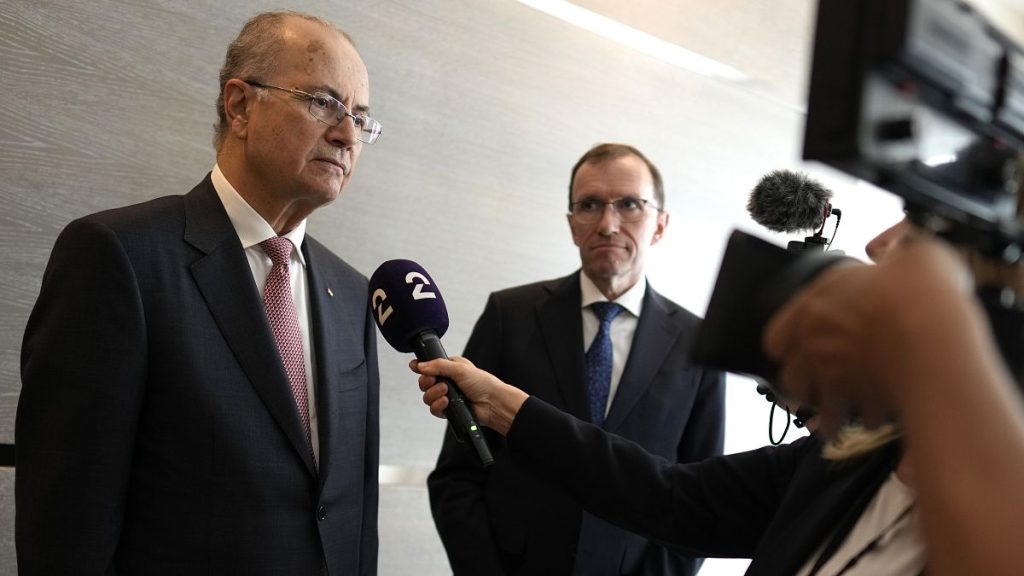Palestinian Prime Minister Mohammad Mustafa is working on reforms to govern Gaza after the recent war, with the goal of eventually governing all Palestinian Territories. He is calling for more European countries to join Ireland, Spain, and Norway in recognizing the state of Palestine as a crucial step towards lasting peace in the region. Mustafa emphasized the need to quickly assist the people in Gaza and prepare for a future where the Palestinian Authority is in power. He stressed the importance of building strong state institutions and having a clear plan for governing Gaza. Mustafa believes that further recognition of Palestine is essential for achieving lasting peace, describing it as the beginning of realizing peace after decades of waiting.
The Spanish Foreign Minister, Jose Manuel Albares, stood in solidarity with Mustafa and criticized attempts to intimidate Spain following their recognition of Palestine. Israel announced that Spanish NGOs would no longer be allowed to work in the West Bank. Despite condemning Hamas terrorist attacks, Spain remains firm in demanding an immediate ceasefire in Gaza and the entry of needed humanitarian aid. Albares affirmed that Spain will not be intimidated and will continue advocating for peace in the region. Norwegian Foreign Minister Espen Barth Eide also handed over documents officially recognizing a Palestinian state to Mustafa, further solidifying international recognition.
EU Foreign Policy Chief Josep Borrell expressed concern over the ongoing violence in the West Bank and the military offensive in Gaza. He described the situation in Gaza as extremely grave and warned that the West Bank is on the brink of a potentially catastrophic explosion. The Spanish and Irish governments are set to meet with their European counterparts in Brussels to urge other countries to follow their lead in recognizing Palestine. Mustafa believes that increased recognition of the state of Palestine is crucial for preserving the two-state solution and fostering hopes for peace in the region. He emphasized the need for concrete actions towards peace, rather than empty promises.
Mustafa’s efforts to reform governance in Gaza and push for broader recognition of Palestine reflect a strong commitment to achieving lasting peace in the region. By building strong state institutions and actively preparing for future governance, he is laying the groundwork for a stable and functional Palestinian Authority. The support from Spain, Norway, and Ireland, as well as the European Union, demonstrates a growing international consensus in favor of recognizing the state of Palestine. These efforts are seen as crucial steps towards realizing peace after years of conflict and strife in the region.
Despite facing intimidation and criticism, Mustafa remains resolute in his determination to work towards peace and stability in the Palestinian Territories. The recognition of Palestine by Spain, Norway, and Ireland highlights a shift towards greater international support for Palestinian statehood. By calling for a united European front in recognizing Palestine, Mustafa is seeking to build momentum towards a peaceful resolution to the Israeli-Palestinian conflict. As tensions continue to escalate in the region, his efforts are more important than ever in securing a future of peace and coexistence for all parties involved.
In conclusion, Palestinian Prime Minister Mohammad Mustafa’s push for governance reforms in Gaza and increased recognition of Palestine as a state represent significant steps towards achieving lasting peace in the region. Despite challenges and intimidation, Mustafa remains steadfast in his commitment to building strong state institutions and working towards a future where the Palestinian Authority governs all Palestinian Territories. The support from Spain, Norway, and Ireland, as well as the European Union, underscores a growing international consensus in favor of recognizing Palestine. By urging more European countries to join in recognizing Palestine, Mustafa is working towards preserving the two-state solution and fostering hopes for peace in the region. These efforts are crucial in the midst of escalating tensions and violence in the Israeli-Palestinian conflict, emphasizing the importance of concrete actions towards peace and stability.


